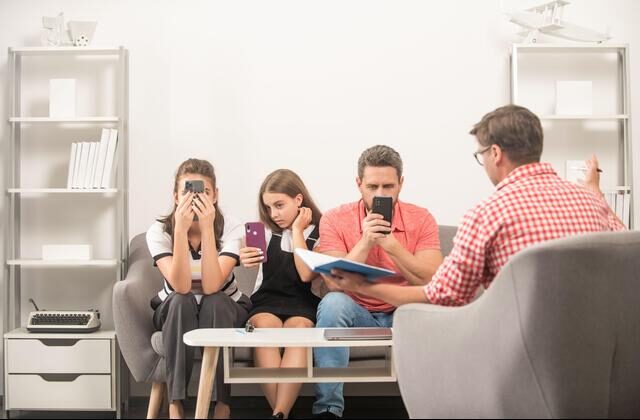
Smartphone and Internet Addiction Treatment
While a smartphone, tablet, or computer can be a hugely productive tool, compulsive use of these devices can interfere with work, school, and relationships. When you spend more time on social media or playing games than you do interacting with real people, or you can’t stop yourself from repeatedly checking texts, emails, or apps—even when it has negative consequences in your life—it may be time to reassess your technology use.
Smartphone addiction, sometimes colloquially known as “nomophobia” (fear of being without a mobile phone), is often fueled by an internet overuse problem or internet addiction disorder. After all, it’s rarely the phone or tablet itself that creates the compulsion, but rather the games, apps, and online worlds it connects us to
Causes and effects of smartphone and internet addiction
While you can experience impulse-control problems with a laptop or desktop computer, the size and convenience of smartphones and tablets means that we can take them just about anywhere and gratify our compulsions at any time. In fact, most of us are rarely ever more than five feet from our smartphones. Like the use of drugs and alcohol, they can trigger the release of the brain chemical dopamine and alter your mood. You can also rapidly build up tolerance so that it takes more and more time in front of these screens to derive the same pleasurable reward.
Heavy smartphone use can often be symptomatic of other underlying problems, such as stress, anxiety, depression, or loneliness. At the same time, it can also exacerbate these problems. If you use your smartphone as a “security blanket” to relieve feelings of anxiety, loneliness, or awkwardness in social situations, for example, you’ll succeed only in cutting yourself off further from people around you. Staring at your phone will deny you the face-to-face interactions that can help to meaningfully connect you to others, alleviate anxiety, and boost your mood. In other words, the remedy you’re choosing for your anxiety (engaging with your smartphone), is actually making your anxiety worse.
Smartphone or internet addiction can also negatively impact your life by:
Increasing loneliness and depression. While it may seem that losing yourself online will temporarily make feelings such as loneliness, depression, and boredom evaporate into thin air, it can actually make you feel even worse. A 2014 study found a correlation between high social media usage and depression and anxiety. Users, especially teens, tend to compare themselves unfavorably with their peers on social media, promoting feelings of loneliness and depression.
Fueling anxiety. One researcher found that the mere presence of a phone in a work place tends to make people more anxious and perform poorly on given tasks. The heavier a person’s phone use, the greater the anxiety they experienced.
Increasing stress. Using a smartphone for work often means work bleeds into your home and personal life. You feel the pressure to always be on, never out of touch from work. This need to continually check and respond to email can contribute to higher stress levels and even burnout.
Exacerbating attention deficit disorders. The constant stream of messages and information from a smartphone can overwhelm the brain and make it impossible to focus attention on any one thing for more than a few minutes without feeling compelled to move on to something else.
Diminishing your ability to concentrate and think deeply or creatively. The persistent buzz, ping or beep of your smartphone can distract you from important tasks, slow your work, and interrupt those quiet moments that are so crucial to creativity and problem solving. Instead of ever being alone with our thoughts, we’re now always online and connected.
Disturbing your sleep. Excessive smartphone use can disrupt your sleep, which can have a serious impact on your overall mental health. It can impact your memory, affect your ability to think clearly, and reduce your cognitive and learning skills.
Encouraging self-absorption. A UK study found that people who spend a lot of time on social media are more likely to display negative personality traits such as narcissism. Snapping endless selfies, posting all your thoughts or details about your life can create an unhealthy self-centeredness, distancing you from real-life relationships and making it harder to cope with stress.
